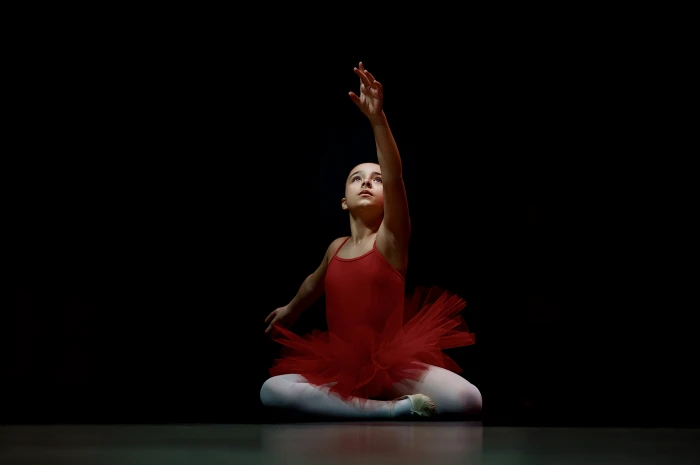

Apart from a brief golden age between the signing of the Good Friday Agreement and the financial crash of 2008, when arts centres sprang up like flowers in every city and town from Belfast to Limavady, and a sense of investing in the arts almost seemed almost normal, the narrative of disinvestment and strategy drift in arts policy has been stark.
Between 2009-10 and 2022-23, in real terms, core grant-in-aid funding of the Arts Councils per person decreased by 18% in England, 22% in Scotland, 25% in Wales and 66% in Northern Ireland. Beyond those kinds of figures however, lie stories of struggle and hardship and of talent unfilled, with the average artist’s wage sitting at £11,390 in comparison with the 2024 average full time working wage in NI being £34,400.
Charlotte Dryden’s excellent piece for Pivotal Platform, laying out the case for increasing funding in the arts in Northern Ireland, was familiar to those of us who have worked in the arts for longer than we care to remember. Picking up the stone of Sisyphus seems to be the lot of all arts and cultural workers here, trying to defend a sector that is, pound for pound, productive, highly successful and carries a high international reputation.
Taking a step back from the budgetary argument however, perhaps we as a society don’t place enough value on the role of arts, culture and creativity which leaves it as a Cinderella in our priorities, and perhaps this starts early. Every person who has worked in the creative industries for any length of time here has an anecdote about someone asking when they were going to get a proper job, or experienced the uncomprehending careers teacher pushing teaching as a much more solid choice for the artistically minded. If education is the bell that sounds out society's values, we should be revisiting the education system and looking back to policies that once demanded our attention and promised a brighter future for the sector and society.
Figures from CCEA published in 2021 show a decline in NI arts A level entrants for subjects such as English literature seeing an 11% drop off since 2020, art and design at 8% and performing and expressive Arts dropping off by almost 9%. Rather worryingly in these times of misinformation, 2021 saw entrants to Media and Film Studies down by 12.5%. Campaign in the Arts highlight that this is a national crisis, with a 29% drop in arts subjects taken up at A-level since 2010 across the UK. While these figures are a few years old, the current funding crises enabled by our fiscal situation and the policy vacuum caused by the regular absence of government at Stormont give little confidence that this situation has been dramatically reversed.
All this seemed very different in the post GFA glow of 1999. The late Sir Ken Robinson led on two ground-breaking reports in that year. First he developed the All Our Futures that argued that an English national strategy for creative and cultural education was essential. This report was mirrored by Unlocking Creativity which was commissioned by the now defunct DCAL (Department of Culture Arts and Leisure - Northern Ireland being the only administration in the UK without culture being explicitly mentioned in the title, which tells a tale in itself) and drew an ambitious vista of a curriculum that would place creativity at its heart.
This report wasn’t ignored entirely and work was fitfully done in the years intervening, but it would be hard for any analysis to argue that it was implemented in full. Excellent work is being done across Northern Ireland to promote creativity and arts, from multi-disciplinary venues such as Derry’s Nerve Centre. NI Science Festival shows how the A can be added to STEM successfully. The approach of Northern Ireland Screen has rightly been praised as an exemplar across the UK driven by a strategic investment in skills and education. In 2020 the CCEA published Teaching With Creativity in 2020, looking to give under pressure teachers guidance in how they could imbue their work with a creative spirit. Unlocking Creativity was a holistic proposal, not simply about making sure everyone could play the flute, but the drop off in the uptake of arts subjects in NI is a signifier that an uncreative base cannot support the creaking, underfunded superstructure.
Even in the face of what you could call the Nolan Conundrum (which hospital ward would you close to increase the arts budget?), the argument that creativity and the arts are integral to the development of skills, improvement of quality of life and vital to the development of a small economy keeps being made. Recent submissions by the Culture, Arts and Heritage Strategy Taskforce that was set up amidst the existential crises of Covid, have shown that this argument will not go away. As Charlotte mentioned in her piece, the crisis in the arts sector demands a cross departmental approach, The Executive as a whole needs to grasp the challenge that Ken Robinson made in 1999 and be brave in putting creativity and arts at the centre of the future society it wants to create.
Much has happened in the world since then, with pressure upon pressure loaded on the public purse, but in order to restore the arts and creativity to its rightful place in NI society moves need to be made to rectify years of neglect. If we want to address the crises in the arts and culture sector, if we want to change the conversation about our priorities, where better to start than with youth and refire the creative vision of 1999.
Hugh Odling-Smee is writing in a personal capacity. He is Manager for Film Hub NI, part of the BFI Film Audience Network, and based at the Queen’s Film Theatre, Belfast. Hugh has over 20 years’ experience working in Belfast's arts and heritage sectors for organisations as diverse as the Linen Hall Library, Kabosh Theatre Company, Belfast Book Festival and Belfast Festival at Queen's.
Pivotal Platform is a home for guest writers to contribute their perspectives on public policy debates in Northern Ireland. The views expressed by guest writers are not necessarily those of Pivotal.





